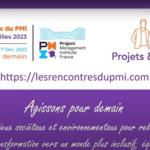Editorial policy
RELEXT’s editorial policy makes it a scientific and professional journal; this suggests an impact on the target audience, the content, the authors of the content, the length of the content, the Peer review and the usefulness of the work. It sees research with a professional purpose as an essential break with “old-style” journals, while at the same time enabling participation in the debate or exchange of practices between professionals in the field of extraction. Multinational extractive companies, as well as governments and local authorities, are showing a growing need for high value-added information on contemporary extractivism, in particular, to take into account societal, environmental and developmental issues, decarbonization (ecological transition), climate change, sustainable development, business ethics and quality management, i.e., the continuous progression of systems, which is the future of law and management, particularly in the extractive sector that interests us. This makes it possible to anticipate potential disruptions in an environment of business risks, themselves linked to social and environmental risks, at the heart of the issues and standards of contemporary extractive governance.
Through its territorial dimension, the magazine takes into account civil society and indigenous communities living near mining sites, who are the first to be affected by extractive activities. She takes a critical look at policies through field experiences in these communities. It is therefore a space for them to defend their rights.
With a more technical and highly professional viewpoint, the magazine welcomes, in English or French, the work of professionals in the extractive sector (specialized lawyers, jurists and other experts from extractive companies, senior civil servants in the extractive sector, entrepreneurs, CSOs in the sector, executives or operational managers in the sector, etc.). It is thus a forum for formulating recommendations to the lex extractiva communautaris. While academics play a leading role in research, they are no longer “the only ones capable – or necessarily the most capable – of producing knowledge that can be truly recycled in action”. (Odile Contat and Anne-Solweig Gremilet, 2015). When professionals “know how to stand back from their practices, they are really able to model and conceptualize from the situations they encounter. The quality of their observations and questioning is irreplaceable in that they experiment with, validate or invalidate the concepts and tools developed by the academic community”. (Odile Contat and Anne-Solweig Gremilet, 2015) However, RELEXT does not ignore the contribution of academic researchers. Likewise, selected contributions are subject to a double-blind peer review, with the scientific committee comprising numerous international experts from both professional and academic backgrounds. RELEXT is subject to high ethical and quality standards to guarantee its indexing at WoS and/or SCOPUS. She does not accept reprints. It exclusively welcomes original contributions from an exhaustive multi-disciplinary field such as legal and political sciences (analyses, chronicles and commentaries on legislation, mediation, arbitration and jurisdictional decisions taken. The analyses show how the state of the law in which the extractive industry operates is changing, and how legal loopholes can be progressively filled, highlighting the effectiveness of the possibilities for justice that present themselves in an evolving judicial context, affirming the hypothesis of extractive jurisdictional and non-jurisdictional responsibility – extractive ombudsman, UN, judge-, etc.). It also naturally embraces economic and management sciences, sociology and social anthropology (multi-level and partnership-based management systems, inclusive governance and trilateralism, a critical approach to extractivism, which calls into question the development model under certain conditions, and critiques of policies through field experience in indigenous and local communities living near onshore mining and oil sites, particularly in developing countries). Exceptionally, the journal may welcome contributions already published in languages other than English and French. In this case, RELEXT requires the publisher’s reference and authorization. .
Through its territorial dimension, the magazine takes into account civil society and indigenous communities living near mining sites, who are the first to be affected by extractive activities. She takes a critical look at policies through field experiences in these communities. It is therefore a space for them to defend their rights.
With a more technical and highly professional viewpoint, the magazine welcomes, in English or French, the work of professionals in the extractive sector (specialized lawyers, jurists and other experts from extractive companies, senior civil servants in the extractive sector, entrepreneurs, CSOs in the sector, executives or operational managers in the sector, etc.). It is thus a forum for formulating recommendations to the lex extractiva communautaris. While academics play a leading role in research, they are no longer “the only ones capable – or necessarily the most capable – of producing knowledge that can be truly recycled in action”. (Odile Contat and Anne-Solweig Gremilet, 2015). When professionals “know how to stand back from their practices, they are really able to model and conceptualize from the situations they encounter. The quality of their observations and questioning is irreplaceable in that they experiment with, validate or invalidate the concepts and tools developed by the academic community”. (Odile Contat and Anne-Solweig Gremilet, 2015) However, RELEXT does not ignore the contribution of academic researchers. Likewise, selected contributions are subject to a double-blind peer review, with the scientific committee comprising numerous international experts from both professional and academic backgrounds. RELEXT is subject to high ethical and quality standards to guarantee its indexing at WoS and/or SCOPUS. She does not accept reprints. It exclusively welcomes original contributions from an exhaustive multi-disciplinary field such as legal and political sciences (analyses, chronicles and commentaries on legislation, mediation, arbitration and jurisdictional decisions taken. The analyses show how the state of the law in which the extractive industry operates is changing, and how legal loopholes can be progressively filled, highlighting the effectiveness of the possibilities for justice that present themselves in an evolving judicial context, affirming the hypothesis of extractive jurisdictional and non-jurisdictional responsibility – extractive ombudsman, UN, judge-, etc.). It also naturally embraces economic and management sciences, sociology and social anthropology (multi-level and partnership-based management systems, inclusive governance and trilateralism, a critical approach to extractivism, which calls into question the development model under certain conditions, and critiques of policies through field experience in indigenous and local communities living near onshore mining and oil sites, particularly in developing countries). Exceptionally, the journal may welcome contributions already published in languages other than English and French. In this case, RELEXT requires the publisher’s reference and authorization. .




